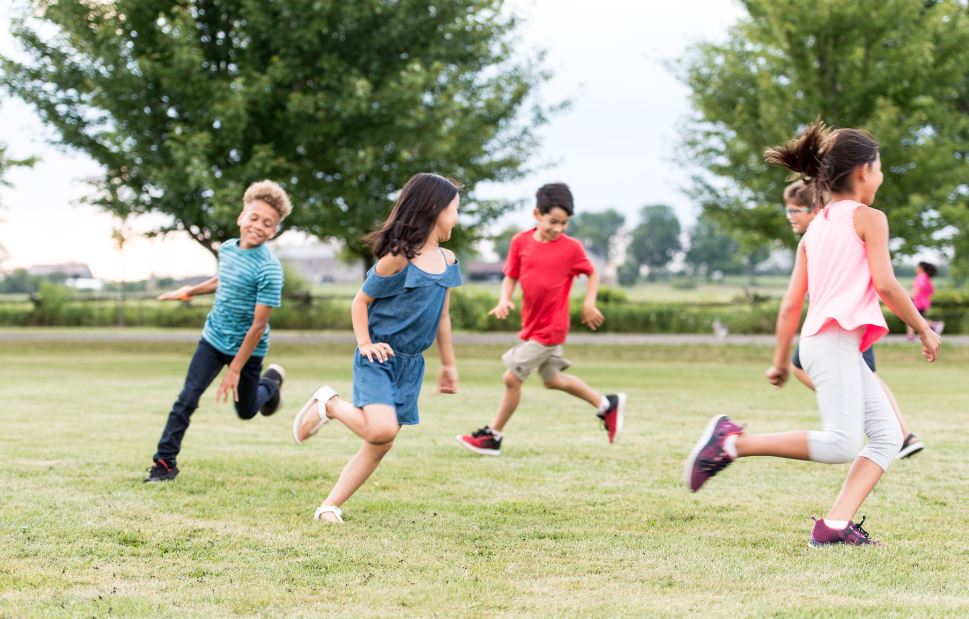
Quality teaching in physical education can and should draw upon a wide range of sources, including culturally diverse methods.
To coincide with Aboriginal and Torres Strait Islander Literacy Day (1 September) – a day to raise awareness of the educational struggles facing many Indigenous groups in Australia – a new study shows how a quality teaching framework can be used with psychology, specifically self-determination theory (SDT), and a Game Sense Approach (GSA) to teach in culturally diverse ways.
Flinders University Associate Professor Shane Pill and Dr John Williams from the University of Canberra explain how psychology and a ‘game sense approach’ can be used to teach Buroinjin as a traditional Aboriginal game.
Buroinjin, originally played by the Kabi Kabi people of South Queensland, is a strategy game in which the aim is to attack an opponent’s territory and score points.
The study, inspired by practical experiences as PE teachers, sought to develop an approach to teaching PE that had the capacity to engage both Indigenous and non-Indigenous students.
“We suggest the GSA can enhance the development of physical literacy because it is a positive pedagogy for sport and games teaching,” says Associate Professor Pill. from the Sport, Health, Activity, Performance and Exercise Research Centre in the College of Education, Psychology and Social Work.
This study explored a teacher educator professional learning opportunity that introduced Buroinjin to Year 5 students (aged 10 to 11) at a government primary school in Canberra.
The GSA focuses on developing ‘thinking players’ – a student-centered approach engaging children in minor and modified game strategies and concepts where there are opportunities to develop both skills and an understanding of the tactics of the game.
The approach is pivotal to Sport Australia’s Playing for Life Philosophy, Sporting Schools Program, and Physical Literacy strategy.
SDT is a popular and overarching framework for studying motivation and personality development.
“In an educational context, students whose psychological needs are satisfied at school show a variety of important positive outcomes, including personal growth and enhanced lesson engagement,” Dr Williams says.
“It’s imperative as educators that we find ways to incorporate SDT in our teaching, and we were able to do that here, through a Buroinjin focused unit of work.”
The outcome of the study was both an effective professional learning opportunity for the researchers, and a means of providing self determination and student autonomy in learning.
“It also had the effect of extending knowledge about Indigenous perspectives in PE,” adds Associate Professor Pill.
One student, Max, reported, “I think we did have a lot of choice to … do things in a group instead of … like the teacher wouldn’t tell us what to do. … sure there’s rules … but not … how to do a strategy or something.”
Catherine also said “It was good to choose what you got to do, because … then you got to play something you actually wanted to do … instead of doing something you probably didn’t want to do.”
“Teachers can promote enquiry-based learning by allowing students to critically reflect on what needs to be done, and hence problem solve,” says Dr Williams.
“Our paper demonstrated an alternative way for teaching PE, using a GSA in the context of a purposefully created positive learning environment.
“By using this approach, we facilitated the opportunity for students to experience optimal motivation while at the same time they learned about Aboriginal culture in a meaningful way.”
‘Combining psychology, a Game Sense Approach and the Aboriginal game Buroinjin to teach quality physical education’ (2021) by John Williams, Shane Pill, James Coleman, Cliff Mallett and Scott Hughes has been published in Curriculum Studies in Health and Physical Education, a Taylor & Francis journal DOI: 10.1080/25742981.2021.1966312.
The article was released by the Media Centre for Education Research Australia (MCERA), an independent, not-for-profit organisation which promotes public understanding of key education-related issues.
See also: Direct literacy instruction beneficial for children with autism around the world, a study from the Caring Futures Institute at Flinders University.

